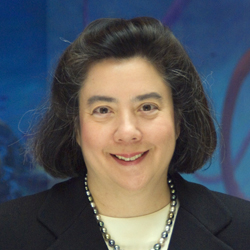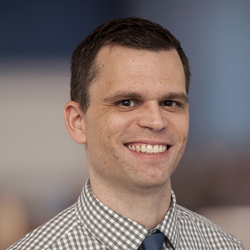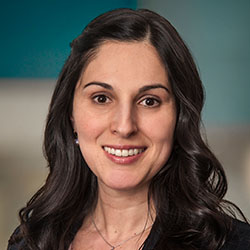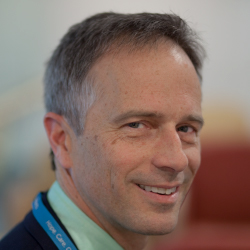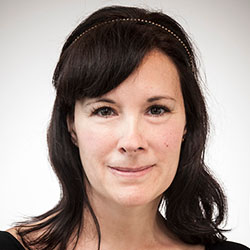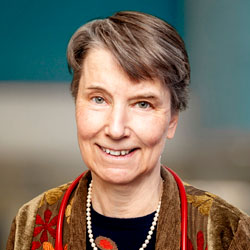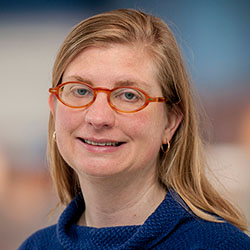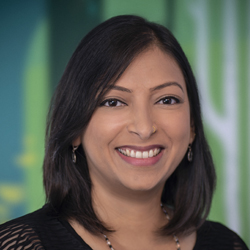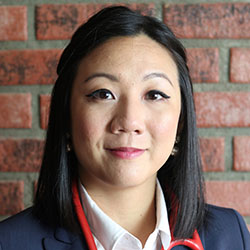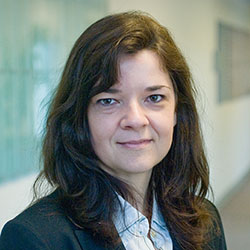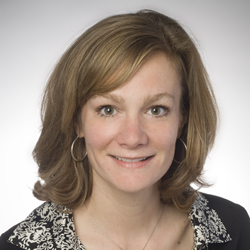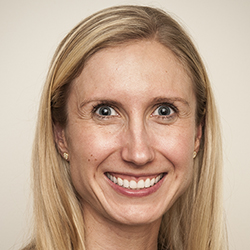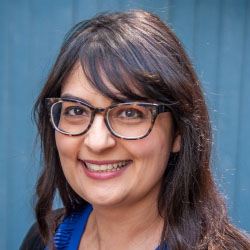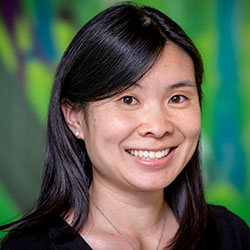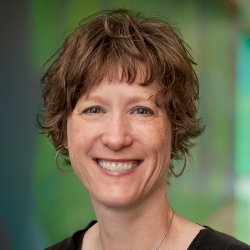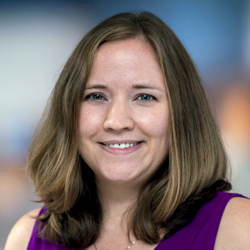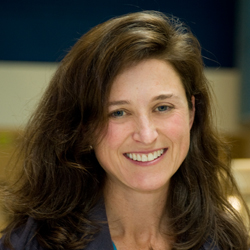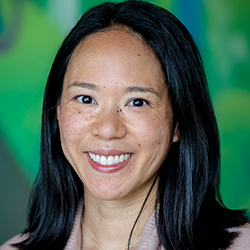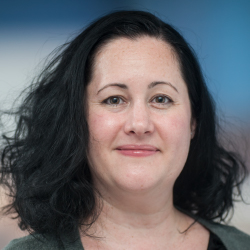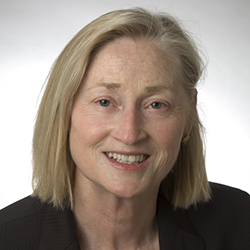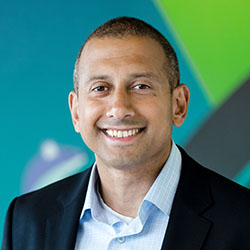Congenital Adrenal Hyperplasia
-
Schedule an appointment with the Congenital Adrenal Hyperplasia Program
- For appointments, call 206-987-0304 or 866-987-2000 (toll free).
- How to schedule.
If this is a medical emergency, call 911.
-
Find a doctor
-
Locations
- Seattle Children’s hospital campus: 206-987-0304.
-
Refer a patient
- Urgent consultations (providers only): call 206-987-7777 or 877-985-4637 (toll free).
- If you are a provider, fax a New Appointment Request Form (NARF) (PDF) (DOC) to 206-985-3121 or 866-985-3121 (toll free).
- No pre-referral workup is required. If you have already done a workup, please fax this information, as well as relevant clinic notes and the NARF, to 206-985-3121 or 866-985-3121 (toll free).
- View our complete referral guidelines.
What is congenital adrenal hyperplasia?
Congenital adrenal hyperplasia (CAH) is a group of conditions that affect your child’s adrenal glands. Congenital means that your child had this at birth, and hyperplasia means that the glands are overgrown.
Normally, the adrenal glands make and release the hormone cortisol. Cortisol plays a key role in how the body uses sugar for energy and how it deals with stress. In CAH, your child’s adrenal glands can’t make enough cortisol because they are missing an enzyme.
As your child’s body keeps trying to make cortisol, it creates too much androgen. Androgen is a sex hormone that is typically most active in males. It affects growth and development.
-
Types of CAH
There are two main types of CAH: classical and nonclassical.
Classical CAH is more severe. It can be life threatening. Newborns in the United States (and many other countries) have a screening test to check for CAH so they can get treatment quickly. Along with low cortisol and high androgen levels, babies with classical CAH often have low aldosterone. This hormone helps maintain healthy levels of fluid, sodium and potassium.
Nonclassical CAH (NCAH) is milder. But it can still affect the body in many important ways. The effects can begin to show anytime from early childhood through adulthood. Treatment can help prevent, relieve or manage the effects. Some people with NCAH never have symptoms and don’t need any treatment.
Why choose Seattle Children’s for CAH care?
Seattle Children’s is designated a CAH Center of Excellence and a Level 1 Comprehensive Care Center for CAH by the CARES Foundation. We are the only such center in the Northwest and one of just a handful in the country.
-
The experts you need are here
- Our CAH Program brings together board-certified specialists from many areas of healthcare — including endocrinology, urologic reconstructive surgery, neonatology, genetic counseling, gynecology and psychology — to provide the many types of care your child may need.
- Your child’s providers work as a team to understand how CAH affects your child. Then we plan and deliver care custom made for them.
- We have decades of experience working with families like yours. We can help — if you just learned your newborn has CAH, you have been searching for an accurate diagnosis for years or you have already had CAH treatment somewhere else.
- Our CAH care coordinator helps ensure you get the care and support you need. This nurse works closely with you and your child’s whole CAH team to identify concerns, set goals, provide care, evaluate results and teach your family about CAH.
- We offer a full range of care for CAH, including surgery for families who want or need it. Our expertise and services qualify us as a Level 1 Comprehensive Care Center. Level 1 means you can count on excellence in both medical care and surgical care here. The CARES Foundation has given this designation to only a handful of centers across the United States.
- Dr. Patricia Y. Fechner is the medical director of our CAH Program. She is a nationally recognized expert in CAH. She also serves as the Washington state endocrine newborn screening consultant. This means she consults with doctors around the state when their newborn patients test positive for CAH.
- Drs. Margarett Shnorhavorian and Mark Cain are surgical co-directors of our CAH Program. They are internationally recognized experts in surgical care for children with this condition. Together they have over 45 years of experience caring for children with the complex concerns linked to CAH.
- Many of our CAH team members are active in teaching other healthcare providers around the country about CAH and how to treat it — through lectures, presentations and trainings.
-
Care from birth through adulthood
- Seattle Children’s provides comprehensive care for babies, children, teens and young adults with CAH. We also serve adults with CAH through our partnership with UW Medical Center. We partner with UW Medicine doctors who specialize in adult endocrinology, reproductive medicine and urology.
- As our young patients move through their teen years, we work closely with them to take on more responsibility for their own care. Our transition program prepares them for success in the adult healthcare system.
- If you or another close family member has CAH, chances may be higher that your baby will have it. Our team can talk with you about your risk, assess your baby if you are pregnant and help you understand the results.
-
Support for your whole family
- All members of your CAH team are here to support you and your family as you learn more about CAH and how to live the healthiest life. Comprehensive care goes beyond treatments like medicines and surgery. It’s also about helping you thrive.
- We make sure you have the information and guidance you need to understand CAH and take part fully in all care decisions.
- As challenges come up, we’re here to help you cope. A social worker and psychologist on the CAH team provide direct support around behavior and mental health. We also connect you with patient and family support groups and other resources in the community.
- Seattle Children’s hosts a CAH Family Day to bring together families affected by this condition. The event includes panel discussions, breakout sessions and fun activities.
- Each year we take part in a week-long gathering at Camp Korey for children with CAH.
Symptoms of CAH
If a screening test shows your newborn might have classical CAH, your primary care doctor will get the results and let you know. It’s important to seek care right away, even if you have not noticed any symptoms yet. Classical CAH can be life threatening if not treated.
-
Classical CAH symptoms
Girls with classical CAH are often born with genitals outside the body that look more like those of a typical boy or appear to be ambiguous (not certain). They might have a large clitoris. It might look like a small penis. Their labia might be joined. (Inside, they have typical reproductive organs for a girl — uterus, ovaries and fallopian tubes.)
Boys with classical CAH show no outward signs when they are born. This is why all babies are screened for CAH.
Without treatment, newborns with CAH can develop serious symptoms within days or weeks. These can include weight loss, vomiting, dehydration, diarrhea, shock, heart rhythm problems and others, including coma or death.
-
Nonclassical CAH symptoms
Nonclassical CAH does not always cause symptoms. If it does cause symptoms, they can start at any age. The symptoms vary from person to person and may change over time.
Many common effects, like these, have to do with puberty and growth:
- Signs of early puberty (before age 8 for girls and before age 9 for boys), like pubic and underarm hair, body odor from sweating and moderate to severe acne
- An early growth spurt because bone growth starts sooner than usual and then shorter adult height because bone growth stops sooner than usual
- In girls, early age of first menstrual period, irregular periods and more or different body hair than is typical (like thick hair on their chin and upper lip)
- In boys, early beard growth and larger penis than typical for their age with small testes
Diagnosing CAH
Newborn screening for CAH is done using a drop of blood from a heel prick at birth. If the test comes back positive, your primary care provider will let you know. They will consult with Seattle Children’s for next steps. Your newborn will need further blood tests to confirm the screening results. Seattle Children’s CAH experts are available 24 hours a day, 7 days a week, to guide primary care providers on the tests and treatment your newborn needs.
Older infants, children, teens and adults are diagnosed the same way — with blood tests to check their hormone levels. Our CAH team asks about your child’s health history and examines your child before deciding what tests your child needs. A common test for CAH is a 17-OH progesterone level. Sometimes an ACTH stimulation test (PDF) (Spanish) is needed.
-
Bone age X-ray
To learn more about the effects of CAH on your child, we may take an X-ray of their hand and wrist. We do this to compare their actual bone growth to what’s typical for their age. This helps us understand how hormones are affecting their growth.
-
Genetic and prenatal testing
Genetic testing can look for genes that cause the enzyme problems seen in CAH. This isn’t usually needed to make a diagnosis. But it can help confirm the diagnosis and check how severe the enzyme problem is.
Usually, CAH happens when both parents pass a gene for this condition on to their child. Parents who have only 1 CAH gene change are carriers. They do not have CAH, but they can pass the gene on to their children. If you are or might be a carrier or you have CAH, genetic counseling can help you understand what this means for you.
Prenatal genetic testing can show whether your unborn baby has CAH. At Seattle Children’s, we don’t do this testing for CAH before birth. We may help coordinate testing with your obstetrician. We do help interpret your test results and talk with you about them.
Treating CAH
With proper care, CAH can be managed, and people with the disease can have long, healthy lives. Here at Seattle Children’s, we treat all forms of CAH in people of all ages, from birth through adulthood. Our team provides comprehensive care to prevent or address the health effects of CAH and give your child the best quality of life.
-
Medicines
Hormones (corticosteroids and mineralocorticoids) taken at home in pill form can replace the hormones (cortisol and, if needed, aldosterone) that your child’s body doesn’t make. We adjust the dose to your child’s needs, which change as your child grows. We also give hormones and other medicines by shot (injection) or intravenous (IV) line, if your child ever needs this in an emergency to balance their levels of hormones, sodium or potassium. We teach you what you need to know about cortisol replacement therapy (PDF) (Spanish) for daily life and emergencies.
-
Surgery
Reconstructive surgery is an option for girls with classical CAH if their genitals are not typical. Not every family wants or needs this, but some do. Our team talks with you in detail about surgery options and the many factors to consider when thinking about surgery. Some parents opt to delay the choice until their child is old enough to help decide. If your family chooses surgery, we have experienced surgeons to plan and perform your child’s operation.
-
Mental health support
Seattle Children’s CAH team includes a psychologist and a social worker. Along with the rest of your team, they help your child and family find resources and cope with the stress and challenges of living with CAH.
-
Genetic counseling
A genetic counselor on the team helps families understand the genetic causes of CAH. They also explain the chances of the condition happening in another pregnancy. They can explain how other family members might be affected too.
-
Skin treatments
Some effects of CAH can show up on the skin. Acne and unwanted hair are 2 examples. If these concerns affect your child, a Seattle Children’s dermatologist can evaluate your child’s needs and provide treatments to help.
-
Clinical nutrition
CAH and its treatment can affect your child’s weight, salt levels and bone health. A nutritionist is on the team to help your family understand your child’s nutrition needs and make food choices that support your child’s long-term health.
-
Transition to adult care
We work closely with teens and young adults to prepare and empower them to take on a greater role in their own care. We’re committed to making sure that they are ready to enter the adult healthcare system and that they have the experienced providers they need. Seattle Children’s pediatric specialists partner with CAH experts from UW Medical Center to offer seamless care.
Meet Your Team
The CAH Program team includes Seattle Children’s specialists in endocrinology, urologic reconstructive surgery, genetic counseling, medical genetics, psychology, pediatric and adolescent gynecology, radiology, pediatric anesthesia, clinical nutrition, neonatology, dermatology, social work and child life. To provide comprehensive care for adults with CAH, we partner with doctors from UW Medical Center.
Leadership
-
Medical Director, DSD Program; Medical Director, CAH Program and Co-Director, Turner Syndrome Clinic
-
Margarett Shnorhavorian, MD, MPH
Surgical Director, DSD Program; Surgical Director, CAH Program; Director, Research Division of Urology
Teams
Endocrinology
Pediatric and Adolescent Gynecology
Research and Clinical Trials
Several Seattle Children’s specialists conduct CAH research. We are active in studies to better understand the disease, the best ways to treat it and how to enhance the lives of people with CAH.
Examples of our current or recent research projects include:
- Testing a medicine (NBI-74788) that may help reduce the amount of corticosteroids needed to treat CAH
- Tracking long-term results in girls who had reconstructive surgery
- Studying how CAH does or does not relate to a child’s gender development and well-being
We also take part in the I-CAH registry. The registry allows doctors and scientists around the world to share data to improve care for everyone with this condition.
Help us answer questions about childhood health and illness, and help other children in the future. Learn more.
Contact Us
Contact the CAH Program at 206-987-0304 for an appointment, second opinion or more information.
Providers, see how to refer a patient.
Telemedicine at Seattle Children’s
You may be offered a telehealth (virtual) appointment. Learn more.
Related Links
- ACTH Stimulation Test (PDF) (Spanish)
- Cortisol Replacement Therapy (PDF) (Spanish)
- CARES Foundation
- Congenital Adrenal Hyperplasia (Hormone Health Network) (PDF) (Spanish)
- Congenital Adrenal Hyperplasia: A Handbook for Parents (Texas Department of State Health Services)
- The MAGIC Foundation
Paying for Care
Learn about paying for care at Seattle Children’s, including insurance coverage, billing and financial assistance.
For Healthcare Professionals
-
Schedule an appointment with the Congenital Adrenal Hyperplasia Program
- For appointments, call 206-987-0304 or 866-987-2000 (toll free).
- How to schedule.
If this is a medical emergency, call 911.
-
Find a doctor
-
Locations
- Seattle Children’s hospital campus: 206-987-0304.
-
Refer a patient
- Urgent consultations (providers only): call 206-987-7777 or 877-985-4637 (toll free).
- If you are a provider, fax a New Appointment Request Form (NARF) (PDF) (DOC) to 206-985-3121 or 866-985-3121 (toll free).
- No pre-referral workup is required. If you have already done a workup, please fax this information, as well as relevant clinic notes and the NARF, to 206-985-3121 or 866-985-3121 (toll free).
- View our complete referral guidelines.
